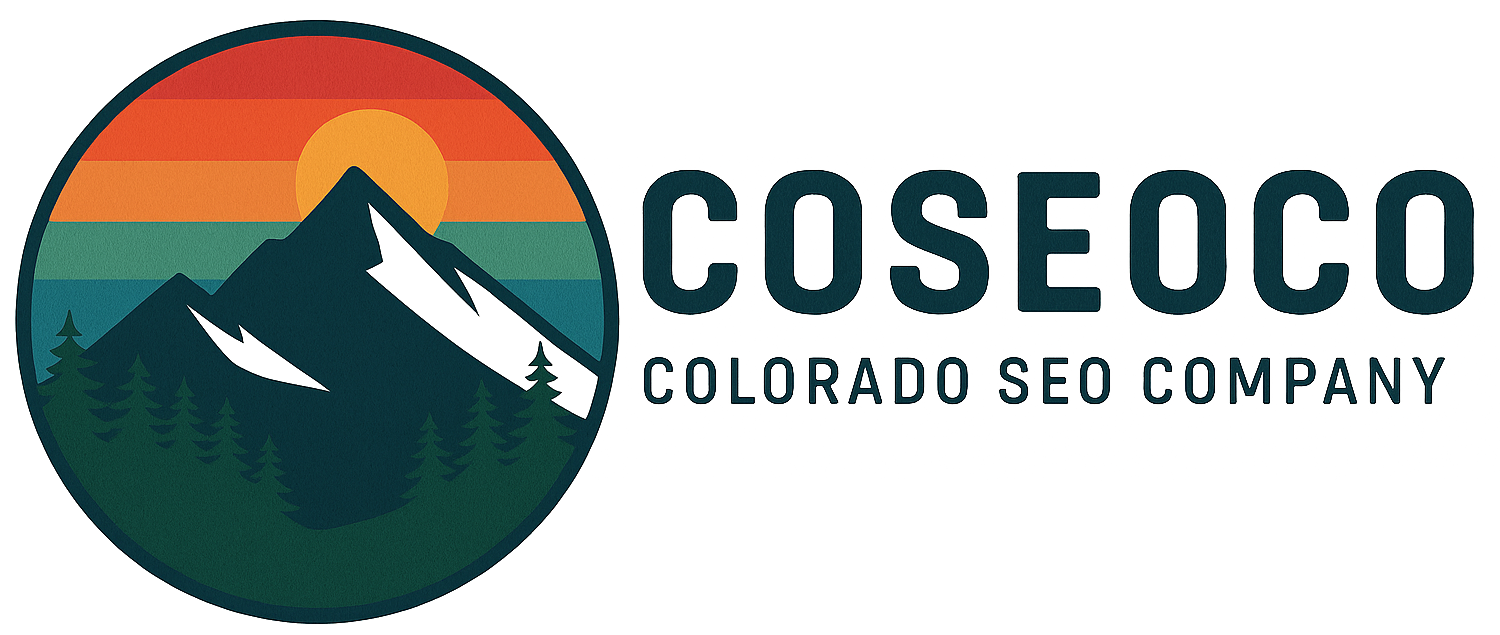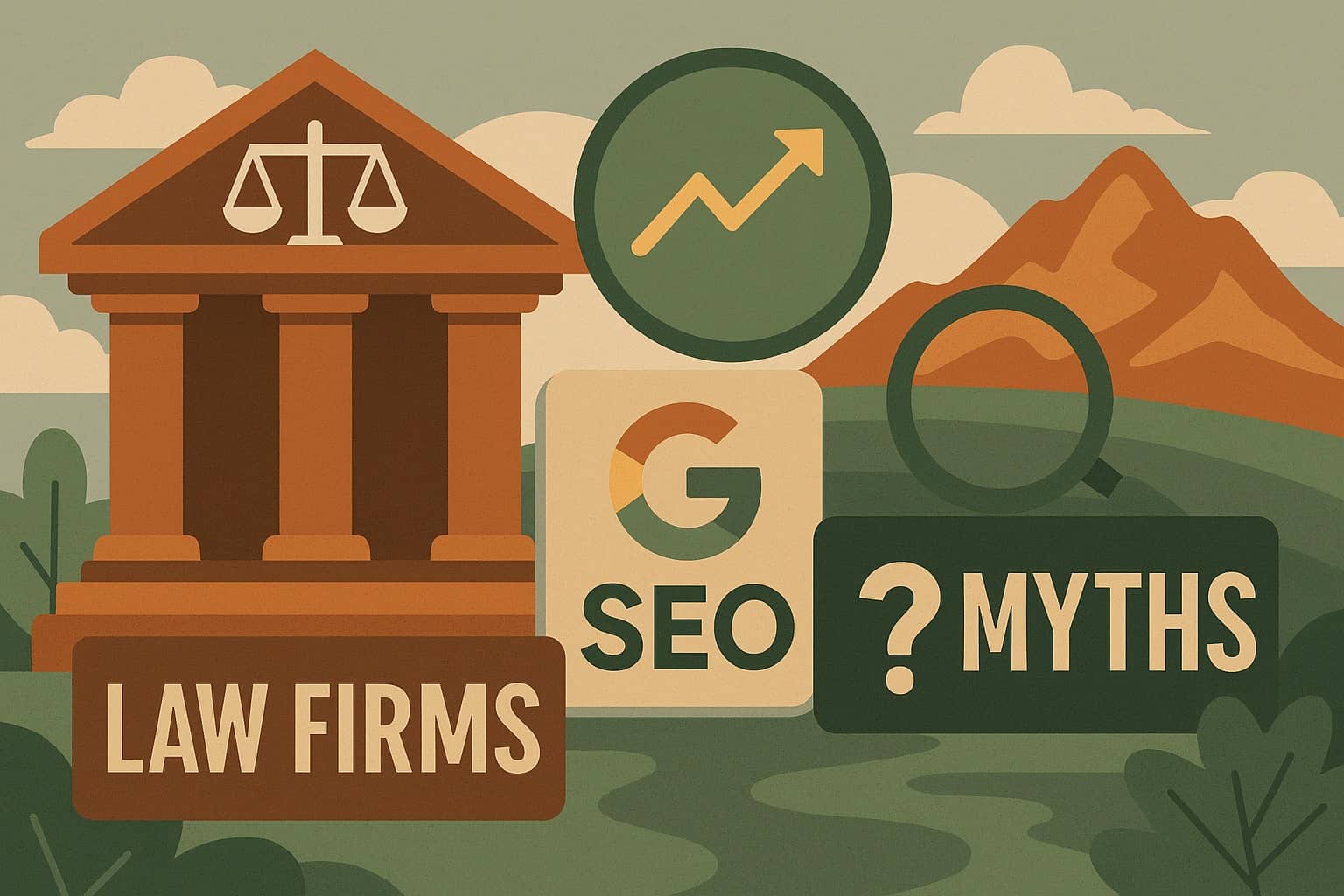table of contents
Proven Strategies on How to Book More Wedding Clients Effortlessly
Destination weddings have transformed the event landscape, turning simple ceremonies into immersive, multi-day experiences that combine the artistry of wedding professionals with memorable travel. The surge in popularity of destination nuptials is matched only by the growing competition among vendors for visibility—especially online. To attract nearby couples and expand reach within specific geographic areas, targeting the local market through localized marketing tactics and online advertising platforms such as The Knot and WeddingWire is essential. As a result, robust local SEO and emerging AIEO/GEO optimization are critical for wedding venues, planners, and other associated vendors wishing to engage out-of-town clients, tap into fresh revenue streams, and future-proof their businesses for the rapidly changing digital marketplace.
Key Takeaways
- Geo-Targeted SEO Is Essential for Destination Wedding Vendors – Vendors must optimize for both local search and out-of-town intent. This includes using location-specific keywords (e.g., “Aspen wedding photographer”) and creating content that speaks directly to couples planning weddings from afar. GEO engines prioritize relevance and proximity, so structured data, Google Business Profile optimization, and local backlinks are critical.
- Content Must Serve Dual Audiences: Locals and Travelers – Successful destination wedding SEO blends local authority with travel-friendly content. Blog posts, landing pages, and FAQs should address logistics, travel tips, venue highlights, and seasonal planning. This builds trust with remote clients while boosting organic rankings for long-tail search queries.
- Structured Funnels Convert Search Traffic into Bookings – The blog emphasizes linking SEO efforts to a well-designed sales funnel tailored for wedding vendors. From discovery to inquiry, each step should be optimized with clear CTAs, mobile-friendly design, and emotionally resonant copy. This ensures that traffic from search engines (specially AIEO and GEO) translates into real leads and bookings.

The Booming Destination Wedding Market
Recent Trends and Industry Shifts
The destination wedding market, once viewed as a niche for affluent travelers or high-profile couples, is now fully mainstream. According to The Knot, in 2024, approximately 18% of US couples opted for destination weddings, a figure that continues to rise year-over-year. The majority of destination weddings still occur domestically, but interest in international locations, especially Mexico, the Caribbean, and Southern Europe, remains notable. Couples increasingly choose destinations based on uniqueness, value, and the opportunity for an immersive experience—rather than merely picking a resort with a beach view.
Crucial takeaways from current market research:
- Multi-Day Experiences: Today’s destination weddings are often 3–5 day affairs, complete with welcome parties, local excursions, and farewell brunches, requiring vendors who can coordinate across multiple touchpoints.
- Sustainability and Local Artisans: Couples are interested in eco-friendly practices, locally sourced decor, and authentic touches that showcase the destination’s culture and community.
- Smaller Guest Counts, Higher Spend: Many couples are inviting fewer guests but allocating more budget per guest, investing in curated details, luxury accommodations, and unique activities.
- Influencer and Social Media Inspiration: Platforms like Instagram and curated blogs drive trends and set destination expectations, shaping not only where couples wed but also how they plan.
- Hybrid and Local-Destination Blends: Increasingly, couples are choosing non-traditional “local destinations” within a few hours’ drive, blending the best of domestic travel with retreat-style settings.
- Notable Trend This Week: This week, there has been a noticeable increase in destination wedding inquiries, especially for unique locations and off-peak dates, highlighting the growing demand for fresh experiences.
Local SEO Fundamentals for Wedding Vendors
Why Local SEO is Essential
Local SEO is the art and science of making your business findable and compelling to couples searching for vendors in a specific location. For destination wedding professionals, effective local SEO ensures that planners, venues, photographers, and other services appear not only in standard Google searches but also in Google Maps, local directory listings, and increasingly, AI-powered search/answer engines. By optimizing for local SEO, you can target and attract your ideal clients by appearing in the searches that matter most to them.
Key Advantages:
- Visibility Where It Matters: Most couples perform initial searches with location intent (“wedding venue in [City]” or “wedding planner near [Location]”). Without local SEO, your business is invisible to these high-intent leads.
- Authority and Trust: Local SEO builds credibility by earning links, reviews, and features in trusted local or industry directories. This also boosts your rankings and conversion rates.
- Google Map Pack Inclusion: For location-based searches, Google’s map pack is the most prominent and effective real estate for capturing inquiries—especially from out-of-town couples. Appearing in the map pack can directly help you book more clients from both local and out-of-market searches.
Local SEO Goals for Wedding Vendors:
- Appear in the top three map listings for your main wedding/venue-related keywords in your location.
- Convert searchers into direct leads and successfully book clients by using compelling images, reviews, and clear calls to action.
- Be recommended by AI/chat-based engines responding to location-specific wedding planning queries.
Must-Have Local SEO Elements
| Element | Benefit |
|---|---|
| Google Business Profile | Priority map-pack and local search visibility, authority boost |
| City-Specific Landing Pages | Increased relevance for out-of-town searchers, improved conversions |
| Local Directory Listings | Expanded presence, trust, and citation signals for Google |
| Schema Markup | Enhanced appearance in search (rich results), AI and voice readiness |
| High-Quality Local Backlinks | Improved domain authority, local reputation, and rankings |
| Mobile-Friendly Website | Increased engagement, better rankings, meets traveler needs |
| Image/Visual SEO | Stronger appeal, higher click rates, optimized for Google Images; curate a strong portfolio of your work to showcase your style and attract more inquiries |
| Review Management & Social Proof | Builds trust, influences decisions, supports rankings |
| Analytics Tracking | Data-driven decisions and optimization of marketing investment |
The inclusion of these elements in your marketing and website infrastructure is a foundational step for competing in the destination wedding sector—even before layering advanced AI or GEO tactics.
Destination Wedding Keyword Research
How Couples Search for Destination Weddings
- “Best outdoor wedding venues in Colorado for out-of-town guests”
- “All-inclusive destination wedding packages Mexico”
- “Wedding planner for small group elopement in Aspen”
- “How much does it cost to get married in Santorini?”
- “Top wedding photography clients reviews in [Destination]”
Effective keyword research for destination wedding vendors includes:
- Location + Service: Targets “wedding venue in [Location]”, “best [Location] wedding photographer”, “wedding photography in [Location]”, “wedding packages [Destination]”.
- Venue Type or Experience: “Luxury wedding venue [City]”, “beachfront wedding package”, “mountain wedding coordinator Colorado”.
- Client Origin: “Wedding planners for NYC couples getting married in Colorado”.
- Seasonality/Event: “Spring outdoor wedding Colorado”, “Winter wedding venue Aspen”.
Supporting strategies:
- Use keyword tools (Google Keyword Planner, Ahrefs, Ubersuggest) to identify both high-volume and long-tail phrases.
- Analyze competitors to spot keyword/content gaps.
- Build “buyer personas” for your ideal out-of-town couples to predict search queries.
Google Business Profile Optimization
Why It Matters for Destination Wedding Vendors
- Use Google Posts: Share updates, events, and recent work through Google Posts. Regularly posted updates keep your profile fresh and engaging for prospective clients.
Best Practices for GBP Optimization
- Accurately list your name, address, phone (NAP), website, and business category (e.g., “Wedding Venue”).
- Fill every available field: hours, description (with natural keyword use), services, booking links.
- Upload professional, high-resolution images: exterior, interior, set-up, real weddings.
- Showcase reviews from real couples, vendors, wedding pros, and guests. Regularly request and respond to feedback, including testimonials from wedding pros to build additional credibility.
- Leverage attributes and posts: Highlight LGBTQ+ friendly, multilingual staff, seasonal offerings, etc.
- Use Google Posts: Share news, events, guest stories, or open house info for regular updates.
- Monitor Insights: Track searches, clicks, direction requests, and adjust your strategy accordingly.
Local Citations and Backlinks
Building Trust and Authority Through Citations
- Use Google Posts: Share updates, events, and recent work through Google Posts. Regularly posted updates keep your profile fresh and engaging for prospective clients.
Best Practices for GBP Optimization
Local citations, mentions of your business name, address, and phone number on authoritative sites, are a key ranking factor for local SEO. They signal trust and relevance to Google and often introduce your business to engaged couples through wedding-focused directories.
While some vendors try to gain exposure by posting in Facebook groups, authoritative citation sites are far more effective for building SEO power.
Top Citation Sites for Wedding Services:
Consistently build/maintain citations on major wedding and local business directories. Ensure your NAP is identical everywhere. This supports both Google rankings and out-of-town client confidence.
Local Backlinks: The Power of Partnerships
Local backlinks: links to your site from respected local businesses, venues, tourism boards, or wedding vendor partners are the gold standard for boosting domain authority. When seeking these partnerships, review potential partners’ portfolios to identify collaboration opportunities for styled shoots and cross-site referrals.
Effective backlink strategies:
- Collaborate with venues, photographers, caterers, or florists on styled shoots and ask for cross-site referrals. Organizing or participating in a styled shoot is a great way to build relationships with local vendors and earn backlinks when everyone credits each other’s work.
- Submit real weddings or expert advice to local blogs, bridal magazines, and city visitor guides.
- Join your local Chamber of Commerce, tourism boards, or regional event associations.
Each authentic backlink signals to Google (and AI platforms) that you’re locally relevant and authoritative, increasing your brand’s online visibility far beyond direct search.
Content Marketing for Destination Wedding SEO
Blogging, Storytelling, and Evergreen Content
Consistent, helpful content is a proven way for wedding vendors to rank for organic and AI-generated queries. For example, consistent content marketing can help a wedding photography business build its reputation and attract high-value clients. Regular blogging on topics relevant to destination weddings not only attracts search traffic but also positions you as an expert and resource for planning couples.
Winning content ideas:
- “Top 10 Places to Get Married in Colorado”
- “How to Plan a Seamless Destination Wedding Weekend”
- “Our Favorite Real Weddings at [Venue Name]”
- “Spotlight on Real Brides: Authentic Stories from Destination Weddings”
- “Beach Elopement Packages vs. Traditional Weddings: Pros & Cons”
- Local area guides for out-of-town guests (hotels, restaurants, activities)
- Guest FAQs, checklists (“What to Pack for a Mountain Wedding”)
Tips:
- Use photos and testimonials that showcase real weddings/expertise.
- Feature vendor collaborations to earn backlinks and leverage shared audiences. Highlight client referrals and their impact on building trust and attracting new clients.
- Repurpose content for social media, Pinterest, and email newsletters to boost visibility.
- Ensure your content answers common client questions in natural language—increasing readiness for AI and voice search responses.
AIEO/GEO Optimization for Wedding Vendors
The Rise of Generative Engine Optimization (GEO)
The digital search landscape is rapidly shifting from traditional SEO to AIEO (Answer/AI Engine Optimization) and, more recently, GEO (Generative Engine Optimization). Aligning your business strategy with generative engine optimization can help you stay ahead of industry changes and ensure your approach matches evolving search trends. Modern couples are increasingly using AI chatbots (ChatGPT, Google Gemini, Perplexity, Claude) to plan their weddings—asking detailed, conversational questions about venues, costs, vendor recommendations, and local info.
Why GEO Matters:
- Direct Answers: AI engines aggregate and synthesize information to answer user queries directly, often citing sources.
- Entity and Schema Optimization: These models use structured data, clear organization, and concept “entities” (e.g., your venue, region, or services) to understand and surface your business.
- Citation and Authority: Being cited in AI answers elevates your brand authority and drives relevant, high-quality referrals—often before a user even performs a manual search.
Many vendors are super excited about the potential of GEO to transform how they attract and serve clients.
GEO Optimization Best Practices
- Create clear, helpful, in-depth content that AI engines can extract and reference. Don’t be afraid to step outside your comfort zone by experimenting with new content formats and AI-optimized strategies.
- Use structured data/schema markup for your business, venues, and event pages so AI can parse your offerings precisely.
- Answer specific, local, and cost-related questions (e.g., “How much does a mountain wedding cost in Vail, Colorado?”).
- Maintain entity consistency: Ensure your Brand Name, Address, Phone, website, and services are uniform across all platforms and knowledge graphs.
The payoff? With consistent execution, your business will be recommended *not only by Google searches but also by AI chat and voice engines as a top solution for destination wedding planners and couples.
Schema Markup for Wedding Venues and Vendors
What is Schema and Why Does It Matter?
Schema markup is code added to your website to help search engines and AI understand what your pages are about—inclusive of your business type, features, reviews, prices, and event offerings. Proper schema markup, including marking up your prices to ensure they are displayed accurately in search results and AI-generated answers, increases your chances of appearing in rich search results, Google Maps, featured snippets, and AI-generated “best of” lists.
Types to Implement
- LocalBusiness Schema: For venues, planners, and vendors—complete with address, services, hours, geo-coordinates, and images.
- Event Schema: Mark up every event or recurring package to display dates, times, venue, pricing, and organizers.
- Review and Offer Schema: Highlight testimonials, pricing, and packages in a way that AI engines and search engines can fully parse.
Implementation Pro-Tip: Test your schema using Google’s Rich Results test and make adjustments regularly as your offerings change.
Voice Search Optimization
Preparing for Conversational and Mobile Searches
A significant and rising share of wedding planning now occurs on-the-go via smartphones and through voice assistants (Google Assistant, Siri, Alexa). Voice search queries are longer, more conversational, and often hyper-local (“Hey Siri, what’s the best mountain wedding venue near Aspen?”). When creating your content, try to use natural language as if you’re talking to a friend—this makes your writing more relatable and engaging for voice search.
Voice SEO Strategies:
- Use full sentences and natural language in headings and content (“How much does a Colorado wedding planner cost?”).
- Answer common wedding FAQs in short paragraphs and structured formats—perfect for featured snippets and AI chat summaries.
- Build dedicated landing pages for each location, venue type, and audience to align with specific voice queries.
- List your business on every voice-relevant directory (Google/Apple/Bing/Yelp).
- Repurpose your voice-optimized content by posting it on social media and other platforms to reach a wider audience.
- Ensure your website loads quickly and is mobile-optimized, as voice searches are almost exclusively mobile.
By focusing on these tactics, your business will be more likely to “win” the answer spot when couples use their phones or smart speakers for destination wedding planning.
Multi-Location SEO Strategies for Destination Weddings
Targeting Multiple Venues, Cities, or Regions
Many wedding vendors and venues serve more than one destination market. Effective multi-location SEO requires creating tailored landing pages and business profiles for each region served, maximizing visibility in both “near me” and out-of-market wedding searches.
Best Practices:
- Dedicated landing pages for each city, venue, or region—each page optimized for its own local keywords and client testimonials.
- Hyperlocal content: Showcase real weddings, venues, vendors, and guest tips relevant to each location.
- Uniform NAP and business data across all listings and directories for each branch or location.
- Use schema markup and location-specific reviews to reinforce local authority.
Pro Tip: Highlight proximity to landmarks, unique features (mountain views, oceanfront, historical buildings), and mention popular source cities for your out-of-town clients.
Review and Reputation Management
Turning Social Proof into a Competitive Edge
For destination weddings, where initial trust must often be earned online, reviews are arguably the most critical component of your marketing funnel. They affect both SEO rankings and booking decisions.
Key Strategies:
- Proactively ask for Google, Yelp, and wedding directory reviews immediately after a successful event.
- Respond to every review – positive and negative, thanking clients and addressing concerns. This demonstrates engagement and builds confidence for future clients.
- Leverage client reviews, testimonials, and “as seen in” features on your website and listings.
- Encourage past clients to include photos with their review; these have a stronger impact and higher click rates.
Not only do reviews help Google and AI platforms “see” you as trustworthy, but they are also a top factor in clinching bookings from hesitant out-of-town couples.
Social Media and Local SEO Integration
Social Networking for Destination Reach
Social media platforms, particularly Instagram, Pinterest, and Facebook, are pivotal for visually driven businesses like destination wedding vendors. Beyond inspiration, they are indirect local SEO drivers:
- Tag all posts with location and venue.
- Feature real weddings and client testimonials, tagging venues, vendors, and destination hashtags.
- Share blog content or local area guides—driving visitor traffic and earning shares/mentions.
- Participate in vendor collaborations and cross-promotions for reciprocal reach and backlinks.
Social signals, while a minor direct ranking factor, strongly amplify your content’s visibility, increase engagement, and build relationships that may convert into links, referrals, or guest posts.
SEO Sales Funnel Integration
Moving Prospects from Search to Booking
A high-converting wedding SEO sales funnel guides clients from awareness (discovery) to consideration (comparison/engagement) and finally decision (contact or booking).
Essential elements:
- Cold Funnel: Drive traffic through local SEO, blog posts, directory listings, ads, and social media.
- Warm Funnel: Use compelling landing pages, lead magnets (e.g., downloadable wedding guides), and email nurture sequences to engage high-intent prospects.
- Hot Funnel: Collect references, encourage referrals, and showcase post-event testimonials that prompt direct inquiries and bookings.
To maximize conversions:
- Build clear calls to action (“Schedule a tour”, “Get a sample package”, “Contact for pricing”).
- Use CRM and automation tools to follow up with inquiries—no lead should be lost unattended.
- Analyze funnel performance by tracking metrics from lead source to booking rate, adjusting your strategy for channels or stages with bottlenecks.
Integrating SEO with your sales funnel not only increases inbound leads but also significantly improves your booking closure rate, which is critical for destination vendors with longer sales cycles.
Key Local SEO Strategies and Their Benefits
| Strategy | Benefit |
|---|---|
| Google Business Profile | Top visibility in local packs and map results |
| Multi-Location/City Landing Pages | Targets out-of-town clients searching for specific destinations |
| Long-Tail Keywords | Captures high-intent, action-ready traffic |
| Schema Markup | Enhances appearance in SERPs, preps for AI/voice search |
| Citation & Directory Listings | Builds authority and trust, expands discovery channels |
| High-Quality Backlinks | Boosts domain/local relevance and rankings; partnering with other vendors for collaborations is a great idea to boost your backlink profile and reach |
| Mobile-Friendly Site | Engages inbound travelers and mobile-first planners |
| Image/Visual SEO | Draws clicks, improves branding, supports “visual search” |
| Social Media Integration | Expands reach, user engagement, and shareable content |
| Review Management | Builds social proof, strengthens referral potential |
| Performance Analytics | Enables data-driven strategy and rapid optimization |
Every one of these strategies, when executed together, dramatically increases your venue or service’s visibility to out-of-town couples browsing online and via AI engines for unique, credible, and bookable wedding experiences.
Conclusion: Winning More Destination Weddings with SEO + GEO
Destination wedding vendors face both a remarkable opportunity and a daunting challenge: how to stand out and convert in a crowded, global marketplace where couples plan from afar, rely on digital research, and expect seamless, high-touch service. The solution rests on a two-pronged strategy: robust, technically sound local SEO, and future-ready GEO/AIEO content optimization that meets couples on search, on maps, on voice assistants, and in AI chatbots.
By:
- Mastering traditional areas like keyword targeting, Google Business Profile optimization, technical SEO, and review management,
- Investing in schema and GEO approaches that ready your site for AI, chat, and voice search discoverability,
- Tracking performance and iterating based on real conversion data,
…destination wedding businesses of all sizes can expand their pipeline, become the vendor-of-choice for couples near and far, and thrive in the new era of digital discovery.





